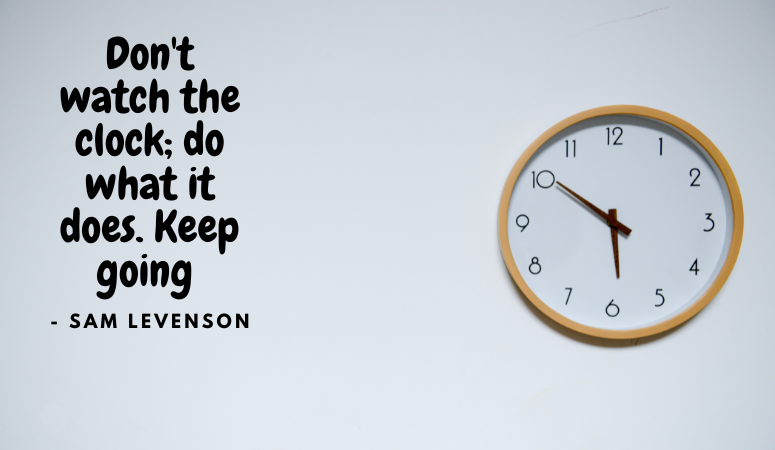What is Cricket Game?
 |
| Cricket Game- Cricket elements Bat and Ball |
Cricket is a game. Cricket is now the most famous game in the world. Cricket is also known as wooden ball, has always been praised as "a gentleman's game" and is a sport that advocates sportsmanship and "fair play". Cricket originated in the United Kingdom and is popular in the United Kingdom, Australia, New Zealand, India, Bangladesh, Pakistan, and other countries.
Cricket, England's national summer sport, is now played all over the world, especially in Australia, India, Pakistan, Bangladesh, Shri Lanka, New Zealand, South Africa, and the West Indies.
Top Questions
When was the game of cricket invented?
It is thought that cricket may have started as a game as early as the 13th century, in which country boys bowled over tree stumps or the pens of sheepfolds.
When was the first test match?
In 1877, Australia and England had their first Test match in Melbourne, with Australia winning. In 1882, when Australia won again at the Oval in Kennington, London, the Sports Times printed an obituary announcing that British cricket would be cremated and the ashes to be shipped to Australia, creating drama for the ashes.
 |
| Cricket Game-A cricket match between England and Australia |
When was the International Women's Cricket Council established?
The International Women's Cricket Committee was established in 1958 by Australia, the United Kingdom, the Netherlands, New Zealand, and South Africa, and later included India, Denmark, and several West Indies.
How many players are on a cricket team?
Cricket is played with a bat and ball and
involves two competing teams (teams) of 11 players each. Since a team has 11
players, 2 of which must be the bowler and the keeper, only the other 9
positions can be occupied at any one time.
Cricket is played with a bat and ball and involves two competing teams (teams) of 11 players each. The field is oval with a rectangular area in the middle, called the pitch, which is 22 yards (20.12 m) wide and 10 feet (3.04 m) wide. Two sets of three sticks, called wickets, are placed on the ground at each end of the pitch. Across the top of each wicket is a horizontal piece called a bail? Both sides take turns batting and bowling (pitching); each round is called an inning (always plural). Each side has one or two innings, depending on the pre-arranged duration of the game, to score the most points. The bowler throws the ball with a straight arm and tries to break (hit) the gate with the ball so that the ball falls. This is one of several ways a batsman can be dismissed or eliminated. A bowler throws six balls at one wicket (thus completing around), and then another player next to him throws six balls towards the opposite wicket. The batting side defends its wicket.
With two batsmen at a time, the batter
(forward) who was batted tried to hit the ball off the wicket. Batting may be
defensive or offensive. Defensive bats protect the wicket, but the batsman
doesn't have time to run to the opposite wicket. In this case, the batter does
not need to run and the game will resume in another bowl. If the batsman can
make an offensive bat, he swaps places with the second batsman (non-batter) of
the other wickets. A point is scored whenever both batsmen can reach the
opposite wicket. If they have enough time without being caught and dismissed,
the batsmen can continue to shuttle back and forth between the wickets, gaining
extra runs each time they reach the opposite side. There is an outer boundary
around the cricket pitch. A ball that hits or crosses the boundary scores 4
points if it hits the ground and then reaches the boundary, and 6 points if it
reaches the boundary from the air (flying ball). The team with the most runs
wins a game. If both teams fail to complete their innings by the allotted time,
the game is declared a draw. Scores in the hundreds are common in cricket.
Cricket matches can range from informal
matches played on country greens on weekend afternoons to top international
matches in five-day Test matches, played by leading professional players in
large stadiums.
 |
| Cricket Game |
History
Origin
Uncover the history and rules of cricket Learn more about the history and rules of cricket. Encyclopedia Britannica, Inc.
Cricket is thought to have begun as early as the 13th century as a game in which country boys enter the sheepfold on tree stumps or in front of hurdle gates. The gate consists of two uprights and a beam that sits at the top of the slot; the beam is called the bail, and the entire gate is called the wicket. The fact that the bail could be removed when the door was struck made this preferable to the stump, the name of which was later applied to the railing post. Early manuscripts vary in the size of the wicket, which received the third stump in the 1770s, but by 1706 the pitch (the area between the wickets) was 22 yards long.
The ball, once presumably a stone, has
remained unchanged since the 17th century. Its modern weight ranges from 5.5 to
5.75 ounces (156 to 163 grams) and was established in 1774.
The original bat was undoubtedly a branch,
similar to a modern hockey stick, but longer and heavier. The switch to
straight bats was to fend off long bowling, which was developed with cricketers
in Hambledon, a small village in the south of England. The bat was shortened on
the handle, straightened, and widened on the blade, which resulted in
forwarding play, drive, and cut. As bowling technology was not yet very
advanced during this period, batting dominated bowling throughout the
18th-century leading position.
Early years
The earliest mentioned 11-a-side match was
played in Sussex in 1697, with stakes of 50 Guineas. In 1709, Kent met Surrey
in Dartford's first recorded inter-county game, this time most likely a law
(rule) for the conduct of the game, although the earliest version of such a
rule is 1744. Sources suggest that cricket was limited to the southern counties
of England in the early 18th century, but its popularity grew and eventually
spread to London, especially to the Artillery Field in Finsbury, the 1744 Kent
team, and the All England The team played a famous game there. Heavy betting
and chaotic crowds are common at games.
In the second half of the 18th century,
before the rise of the London Marylebone Cricket Club (MCC), the aforementioned
Hambledon Club at Broadhalfpenny Down in Hampshire was a major cricketing
force. Formed from a cricket club that played in White Leading Fields, the club
moved to Lord's Cricket Ground in St Marylebone in 1787 and became the MCC,
publishing its first revised Code the following year. Lord's is named after its
founder, Thomas Lord, and has three locations throughout its history. Moving to
what is now St John's Wood in 1814, Lord's became the headquarters of world
cricket.
In 1836, the first North County vs South
County match was played, providing clear evidence of the spread of cricket. In
1846, the All England XI, founded by William Clarke of Nottingham, began to
tour the country, and from 1852, some leading professionals (including John
Wisden, who later wrote the first famous The Weston Cricket Yearbook) broke
away from these two teams to form the United All England XI, monopolizing the
best cricket talent until the rise of county cricket. In 1859 they provided
players for the first overseas British tour team.
 |
| Cricket Game |
The basic skills of cricket
The basic skills of cricket consist of
catching, passing, pitching, and batting. (1) Catch the ball: Use both hands to
catch the ball in place, and keep your eyes on the incoming ball. When catching
the ball, both hands should have a backlash and buffer action to avoid
collision and rebound. (2) Passing: Use the index finger, middle finger, and
thumb to hold the ball. Passing is the same as throwing. The front foot should
be pointed at the target. When passing the ball, pay attention to flicking the
wrist. After throwing, the forward and follow-up actions should be completed.
There are 3 types of passing positions, namely shoulder pass, shoulder side
pass, shoulder pass, or low hand pass. (3) Batting: There are 3 methods;
batting, batting, and batting. When swinging, keep your hands close, your front
elbows away from your body, your forearms flat, your back elbows should not be
too close to your body, your feet should be slightly separated, and your front
feet should not be stretched too much when swinging, so as not to affect your
swing.
 |
| Cricket Game |












No comments:
Post a Comment